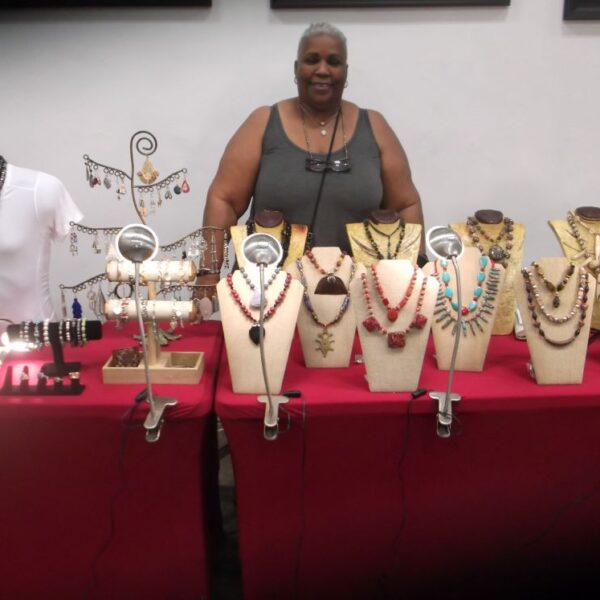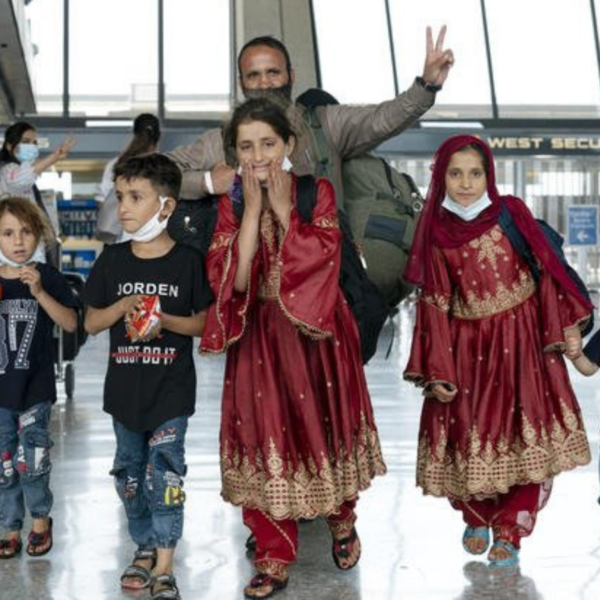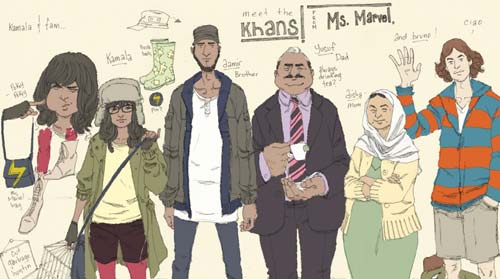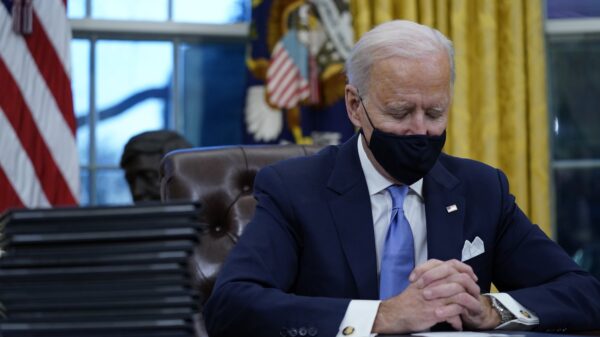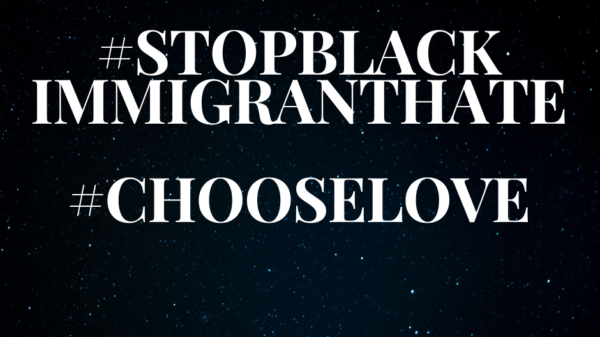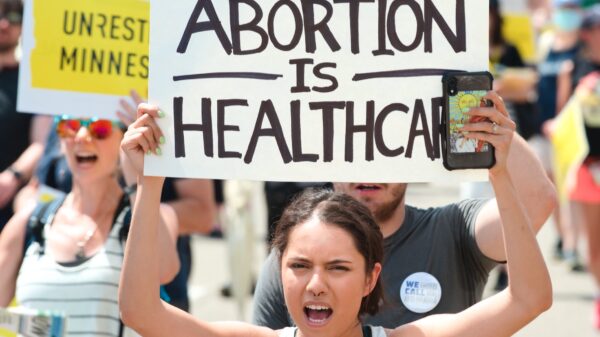A discussion at a briefing hosted by the Ethnic Media Services briefing highlighted the critical role that reproductive rights will play in the upcoming 2024 election cycle. Lupe Rodriguez, National Executive Director of the Latina Institute for Reproductive Justice, Ebony Baylor, Vice President of Government Affairs, In Our Own Voice: Black Women’s Reproductive Justice Agenda Yvonne Hsu, Chief Policy and Government Affairs Officer of the National Asian Pacific American Women’s Forum (NAPAWF), and Suba Srinivasaraghavan, a field organizer for They See Blue, all emphasized the importance of reproductive freedom and abortion access in state politics, candidates’ platforms, and voters’ decisions.
Angela Vasquez-Giroux, Vice President of Communications and Research at NARAL Pro-Choice America, discussed the urgent need to fight for reproductive freedom and abortion access, particularly in the face of the Republican party’s extremist agenda. She noted that millions of Americans are currently facing the reality of life without access to abortion care due to the increasing number of state bans on abortion. These bans disproportionately harm historically oppressed communities, including women and communities of color.
Despite the grim state of abortion access in the country, there is reason for hope. During the 2022 mid-term elections, voters across the political spectrum, including women and young people, rejected attacks on reproductive rights and voted to protect and expand access to abortion. This suggests that women will be a deciding force in the 2024 elections, and that reproductive rights will continue to be a front-burner issue.
NARAL’s post-election polling has confirmed that abortion played a significant role in the midterm elections, with impact research conducted in key battleground states. According to the study, 45% of voters said that abortion played a larger role in their voting decisions than in past elections, including 64% of voters who ended up voting for a Democrat for Senate or governor, 52% of black voters, and 51% of voters aged 18 to 34.
The research also revealed that people are concerned that anti-choice Republicans are working to further roll back reproductive rights, with a majority of 52% expressing concern that Republicans will try to ban abortion care. This includes 74% of black voters and 53% of non-Democrats who voted for Democrats in the midterm.
The intensity of support for abortion access has not decreased, according to new polling from Navigator Research. Three in four Americans believe that the government should not prevent a woman from making her own decision, and nearly seven in ten Americans say the right to an abortion in the US is at risk. Furthermore, Americans across many demographic groups support legal abortion in all or most cases, with nearly 70% of young people supporting abortion in all or most cases. Not a single state in the country supports overturning Roe v. Wade.
Reproductive freedom is a critical issue that impacts every facet of our lives, and voters want to see their elected officials reflect their values. Women of color, particularly black women, have been leading the fight for reproductive freedom and pushing elected officials to get on board with the majority of Americans who believe in the right to legal abortion. Women of color are a powerful voting bloc for reproductive freedom, and if we help our communities understand what’s at stake, we’ll have the ability to make lasting progressive change.
Leaders who support reproductive freedom are working to protect and expand access from state houses to Congress to the White House. The Women’s Health Protection Act was reintroduced by House Democrats just yesterday, which would restore the right to abortion and create a right for healthcare providers to provide that care and a corresponding right for people to receive that care free from medically unnecessary restrictions.
To protect our fundamental rights, we need leaders in office who will fight for us and those rights. The anti-choice movement is not the majority, and it’s up to us to turn out and help realize the future where all our families and communities have what they need to thrive. The moment to harness our power and mobilize our communities to vote is now, and we remain committed to working alongside our partners and members to protect our rights in 2024 and beyond. The midterm showed us that when we fight for reproductive freedom, we win, and voters are with us and tired of having their rights trampled on.
During the event, Lupe Rodriguez, National Executive Director of the Latina Institute for Reproductive Justice, spoke about the organization’s mission to build power in the Latino and Latinx communities across the United States. Rodriguez emphasized the importance of ensuring that these communities have access to sexual and reproductive health care, including abortion care, and are not denied care due to factors such as income, age, race, disability, immigration status, or state of residence.
Rodriguez acknowledged the long-standing efforts of anti-abortion politicians to restrict access to abortion, which has had a disproportionate impact on communities of color and those with financial hardships. Since the Supreme Court overturned Roe v. Wade last summer, 13 states have enacted abortion bans, and politicians across the country continue to introduce further restrictions. The Latina Institute, in partnership with the National Partnership for Women and Families, conducted research that found that nearly 6.5 million Latinas, representing 42% of Latinas ages 15 to 49, live in the 26 states that have banned or are likely to ban abortion, making them the largest group of women of color affected by these laws. Furthermore, nearly three million Latinas living in these states are economically insecure and do not have access to the funds necessary to travel to another state for abortion care.
Rodriguez pointed out that Latinas and other communities of color often work multiple jobs that do not provide sick days or insurance coverage, making it even more difficult to access abortion care. Additionally, undocumented individuals in states like Texas face internal checkpoints that could result in family separation, detention, and deportation if they attempt to leave the state for abortion care. These obstacles, coupled with fear of deportation and economic barriers, have made it nearly impossible for undocumented individuals to receive the care they need.
In addition to national efforts, the Latina Institute works in Florida, Texas, New York, and Virginia to expand access to care through state legislatures and policy advocacy. Rodriguez highlighted that there is a lot of misinformation and disinformation about abortion in these communities, which is further perpetuated through social media and messaging platforms like Facebook and WhatsApp that often do not fact-check content in Spanish.
Rodriguez also mentioned an impending decision on a case that could overturn the FDA’s approval of Mifepristone, a medication commonly used for medication abortion care. As time-sensitive essential healthcare, there should not be any medically unnecessary barriers or restrictions to medication abortion, and this case is seen as part of an agenda to ban abortion nationwide. Such restrictions will likely have the greatest impact on communities of color.
Despite these challenges, Rodriguez noted that the majority of people in the United States, including Latinos and Latinx people, support access to abortion care and do not want politicians interfering with their personal healthcare decisions. In the last election, many candidates who supported abortion access won, demonstrating that individuals are supportive of such care.
The Latina Institute will continue to advocate for policies that support people’s whole lives and work with their communities to expand information about upcoming opportunities to demonstrate their political power at the polls on their values about abortion access and healthcare.
Baylor Ebony spoke next, sharing her role as the Vice President of Governor Affairs for In Our Own Voice National Black Women’s Free Reproductive Justice Agenda, a non-partisan national state partnership designed to amplify and lift up the voices of Black women leaders in their ongoing fight to secure reproductive justice for all women and girls. This entity approaches reproductive health from a human rights perspective and incorporates the intersections of race, gender, class, sexual orientation, and gender identity with situational impacts of economic politics and culture that make up the lived experience of Black women in America. At the core of reproductive justice is the belief that all women have the right to have children, the right to not have children, and the right to nurture the children they have in a safe and healthy environment.
Black reproductive justice organizations and their partners across the country are facing challenges to ensure their communities have access to reproductive health care, including safe and affordable abortion care, while also responding to other community needs. Black women voters are also concerned about their access to the ballot box. The ability to access abortion care and maternal health care are additional issues affecting Black women in America.
In Our Own Voice produces a report called the Black Reproductive Justice Policy Agenda. They are updating the report and it will be released this summer. To learn more about their positions and to find the current report, visit www.blackrj.org.
Speaking about the over-criminalization of black women and its relation to abortion rights, it is important to consider states where it is now a crime to get an abortion or help someone with one, particularly in black and brown neighborhoods that are already over-policed. Unfortunately, in these communities, the likelihood of individuals getting arrested and prosecuted is higher, making it a concern that they will be targeted as people make decisions about getting or assisting with an abortion in places where it is illegal.
Moving on to Yvonne Hsu’s perspective, it is clear that there is an abortion access crisis facing people of color, including Asian Americans and Pacific Islanders (AAPIs). While one out of every three pregnancies in the AAPI community results in an abortion, financial, economic, and language barriers, as well as cultural stigmas, have made abortion care out of reach for many AAPI women. AAPI women are also overrepresented in frontline low-wage jobs, making it difficult or impossible to travel and access abortion care.
It is essential to center the most impacted communities when discussing abortion restrictions, as Lupe and Ebony mentioned earlier. These are communities of color, low-income individuals with limited English proficiency, and immigrants. For the AAPI community, 60% are immigrants, and 16% are undocumented. As a result, they are at greater risk of criminalization for their pregnancy outcomes due to racial profiling rooted in anti-immigrant sentiments and false claims that AAPI women prefer sons over daughters, which is not true.
The overturning of Roe v. Wade has dealt yet another blow to API women seeking abortion care, as states have been emboldened to enact their own abortion restrictions or bans. This lack of access to abortion care puts the well-being and financial stability of millions of API women and families at risk. The Turnaway Study, conducted over five years, showed that being denied an unwanted abortion results in economic insecurity for women and their families, and in almost fourfold increase in odds that household income will fall below the federal poverty line.
In recent years, Asian-American families have been disproportionately affected by long-term unemployment, with AAPI women experiencing the highest rate of long-term unemployment of any racial or ethnic group in the United States in 2020. As of April 2022, Asian American women were continuing to face long bouts of unemployment, experiencing on average over 33 weeks of joblessness. Unemployed or working low-income Asian Americans are much less likely to have health insurance, some lose coverage once provided by their employers, and some are forced to rely on programs with restricted access, such as Medicaid, which millions of Asian Americans rely on for coverage. These impacts on the AAPI community have fueled non-profit work to galvanize Asian American women voters in critical states like Florida, Georgia, and Texas.
Efforts are being made to fight for access to affordable health insurance for all immigrants, regardless of status, through the Heal for Immigrant Families Act. Activists are also fighting for the passage of the EACH Act to lift the ban on abortion access for the millions of low-income persons who rely on Medicaid for healthcare coverage.
Mainstream voter outreach historically does not target the Asian American electorate, especially those who speak a language other than English. It is important for organizers to continue reaching out to first-time voters and to combat voting and election misinformation. During the last election cycle, non-profit organizers and canvassers reached out to over 50,000 voters through phone calls and door knocking, as well as personal and digital outreach to help Asian American communities realize the full potential of their political, economic, and social power.
#reproductiverights #abortionaccess #2024election #politics #voters #womenofcolor #midtermelections #NARAL #battlegroundstates #governmentrestrictions #Women’sHealthProtectionAct #minoritycommunities #access #immigrationstatus #financialhardships #Latinas #undocumentedindividuals #power


